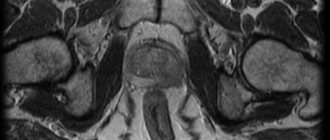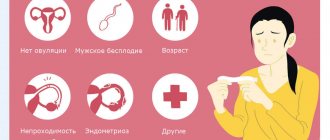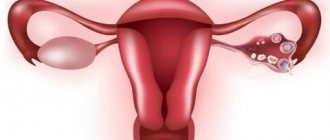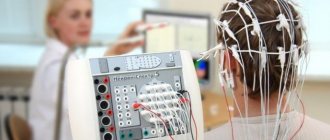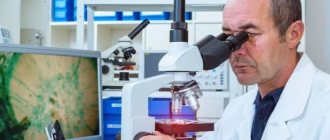Menopause (from the Greek climacter - step of the ladder) is a period of decline in the function of the ovaries (organs in which female reproductive cells mature) and the transition to old age. This is not a disease or pathology, but a natural phase of the life of any woman. There are three stages in the course of menopause: premenopause, menopause and postmenopause.
During premenopause, the ovaries gradually stop producing female sex hormones. As a result, the possibility of conception decreases. This stage can last for several years (from 2 to 10).
Menopause is the last natural menstruation. This period dates back to after a year of no menstruation. Perimenopause is the stage preceding the onset of menopause. At this time, significant changes occur in a woman’s body.
After menopause, a woman experiences the postmenopausal stage, which is characterized by complete loss of ovarian function. Against the backdrop of a reduction in estrogen production, hormonal levels change, the uterine mucosa stops renewing itself, and conception becomes impossible. A woman's body enters a period of aging.
The time of onset of menopause varies from person to person and depends on many factors. However, there are timely (45-55 years), premature (36-40 years), early (41-45 years) and late (over 55 years) types of menopause. In women under 35 years of age, early menopause (failure of the menstrual cycle, the presence of characteristic symptoms) is called “premature ovarian failure.” This pathology can be eliminated by hormonal therapy under the guidance of a qualified specialist.
In a state of stress, aggravated by bad habits and an unhealthy lifestyle, early menopause is quite natural. The situation is aggravated by the presence of chronic diseases. Rapid acceleration also makes its contribution to accelerating the onset of menopause. Over the last century, girls have experienced rapid puberty and the onset of menstruation. Accordingly, ovarian reserves are depleted earlier.
This does not mean that the aging process in women is accelerating! A competent approach to the treatment of early menopause gives a real chance of its reversibility (for a certain period).
What is menopause?
Menopause is a natural process characterized by the decline of female reproductive function. During this period, the production of sex hormones (estrogens and gestagens) by the ovaries sharply decreases.
Menopause affects not only the reproductive system. The lack of female sex hormones affects the condition of many systems and organs. First of all, the functioning of the hypothalamic-pituitary system is disrupted and the mass of the anterior pituitary gland increases. The production of gonadotropic hormones increases many times over.
Other changes in the body may also occur:
- lipid and carbohydrate metabolism disorders;
- decreased calcium levels in the blood;
- high blood pressure;
- accumulation of cholesterol in blood vessels;
- malfunction of the thyroid gland;
- inflammatory processes of the genital organs;
- emotional instability;
- exacerbation of chronic diseases.
It is considered normal if a woman’s menopause begins at the age of 45–55 years. Early menopause (before 42 years of age) is considered pathological. Its causes are hereditary pathologies, autoimmune diseases, acceleration, tuberculosis of the genital organs, uncontrolled use of hormonal drugs, malignant tumors, inflammatory processes of the genitourinary system.
Late menopause can be associated with obesity, thyroid diseases, chemotherapy, surgical interventions on the genital organs, and hereditary predisposition.
How can a woman help herself during menopause?
– It sounds corny, but lead a healthy lifestyle. Get enough sleep - and be sure to do so at night, when the brain produces prolactin, which regulates the function of other important hormones. Try to avoid stress, improve your diet (for example, a diet high in animal protein, eating plenty of vegetables - especially those containing natural follates, which help absorb iron). Plus moderate physical activity: walking, running, yoga, swimming, Pilates.
And, of course, partner support is important here. If a woman is exhibiting symptoms that are disrupting her sex life, it is an issue that needs to be addressed together as a couple to maintain a healthy relationship.
Reproduction of CityDog.by materials is possible only with the written permission of the editors. Details here.
Photo: personal archive of the heroine.
Stages of menopause
There are three stages of menopause:
- Premenopause is the period from the moment of decreased ovarian function and the appearance of the first signs of menopause until the last menstrual cycle. Severe symptoms develop in 60% of women. If changes at the level of the hypothalamus, pituitary gland and ovaries occur gradually, then the symptoms are sluggish. Most often, premenopause develops in women after 45 years of age.
- Menopause is the period when menstruation stops and a woman completely loses reproductive function. Menopause usually occurs between 45 and 55 years of age. Experts diagnose menopause retrospectively: after a year without menstrual bleeding. During this period, symptoms are more pronounced than during the previous phase. If you do not monitor the condition of the body, diabetes, depression and other diseases may develop.
- Postmenopause - 2 or more years of absence of menstruation. The renewal of the endometrium (the inner mucous membrane of the uterine body) stops, vaginal discharge becomes scarce, the uterus and appendages decrease in size. The risk of inflammatory processes in the genitourinary system increases.
Pathogenesis
Symptoms are distinguished depending on the stage of restructuring of the body. In the early period, the following factors are present:
- mood changes;
- increased aggressiveness or irritability;
- increased sweating;
- changes in appetite and taste preferences;
- tides;
- exacerbation of headaches or dizziness;
- frequent changes in blood pressure;
- heartbeat.
The middle period is characterized by the following features:
- anxiety and depression;
- chronic fatigue and feeling of weakness;
- dry skin;
- deficiency of vaginal mucous secretions;
- decreased libido;
- cystalgia;
- impaired concentration.
In the later stages, in addition to the sexual sphere, hormonal changes affect other body systems. The third period is accompanied by the following symptoms:
- increased blood pressure;
- manifestation of atherosclerosis and osteoporosis;
- manifestation of diseases of muscles and joints;
- visual and hearing impairment;
- exacerbation of type 2 diabetes mellitus.
Symptoms of menopause
The complex of symptoms that complicate the course of menopause is called climacteric syndrome (CS). Symptoms are varied: from psycho-emotional problems to metabolic and endocrine disorders.
All signs of menopause are divided into three categories:
- Vegetative-vascular. Vegetovascular dystonia (VSD) is accompanied by hot flashes (a feeling of heat in the body), excessive sweating, rapid heartbeat, dizziness and headaches, unstable blood pressure, and elevated body temperature. If VSD leads to a sympatho-adrenaline crisis, then numbness of the limbs, suffocation, tremors, chills, and heaviness in the chest occur. Panic attacks are possible.
- Exchange-endocrine. This group includes hyperglycemia (increased blood glucose), trophic changes in tissues (hyperpigmentation, local compactions, trophic ulcers), osteoporosis (decreased bone density). Trophic changes in the bladder are possible, which are accompanied by urinary incontinence and cystitis. With trophic disorders in the genitals, dryness and itching in the vagina and pain during sexual intercourse appear.
- Mental. Age-related changes in women are often accompanied by irritability, tearfulness, deterioration in performance, feelings of fear, drowsiness, and depression. Many people experience decreased sexual activity.
The first category of symptoms can be complicated by senestopathy - discomfort in various parts of the body. They may resemble squeezing, burning, tingling, numbness, or pulsation. Such manifestations are devoid of objectivity and are associated with a violation of mental activity.
Online consultation with a gynecologist
Online consultation
During the consultation, you will be able to voice your problem, the doctor will clarify the situation, interpret the tests, answer your questions and give the necessary recommendations.
What signs appear first?
The first sign of menopause in women is an unstable menstrual cycle. Bloody spotting may occur between periods.
With such manifestations, it is important to consult a gynecologist to determine whether they are caused by premenopause or some other disease.
Also, the first symptoms of menopause include:
- tides;
- chills;
- excessive sweating;
- headache;
- blood pressure surges;
- fast heart rate.
The intensity of symptoms largely depends on the physical state of the body and one’s own attitude. In calm and self-confident women, the severity of symptoms of CS is lower than in emotional and irritable women.
To treat the manifestations of CS, conservative therapy is used. Only a specialist can select an effective and safe scheme for correcting serious menopausal symptoms. In addition, regular visits to a gynecologist will help you avoid disorders such as endometrial tumors, ovarian cysts, and inflammatory processes.
How is MONA LISA TOUCH laser treatment performed?
The procedure is no different from a regular examination by a gynecologist. You sit comfortably in our gynecological chair, and the doctor gently inserts the laser device into the vagina. Your sensations will be simple and pleasant - you will only feel slight warmth and slight vibration of the device. The procedure lasts no more than 5 minutes. After which you can safely return to your business and usual responsibilities. Minor restrictions in the first week after the procedure are imposed only on intimacy and physical activity.
Menopause is not a death sentence if you have experienced doctors and the best equipment next to you. Contact a medical doctor and live a full life!
Hormone replacement therapy
Hormone replacement therapy (HRT) is the gold standard for the treatment of menopausal syndrome. The main advantages of this type of treatment:
- Effective in eliminating symptoms. Most discomfort during menopause is associated with a lack of female sex hormones in the body. Therefore, the decision to replenish their supply with the help of hormonal drugs seems logical.
- Complex effect on the body. HRT not only eliminates symptoms, but also has a beneficial effect on the cardiovascular system, serves as a prevention of osteoporosis, inflammatory diseases of the genitourinary tract, and atherosclerosis.
- Wide selection of drugs. They can be prescribed in the form of mono- or complex tablets. There are also alternatives - patches, subcutaneous implants. This allows you to choose the optimal remedy for any woman, taking into account her state of health, body characteristics and personal wishes.
- Availability . Hormonal drugs are sold at any pharmacy, and their cost is low.
Is hormone therapy always necessary?
The main indication for HRT is symptoms, which are classified as moderate and severe menopausal syndrome. For mild cases of CS, hormonal therapy is not prescribed.
Moderate and severe forms of CS are characterized by frequent hot flashes (10–20 times a day or more), severe joint and muscle pain, memory impairment, the occurrence of osteoporosis, and decreased sexual desire.
In addition, hormonal therapy has contraindications:
- bleeding from the genital tract of unknown origin;
- oncology of the mammary glands, genital organs;
- severe liver pathologies;
- vein thrombosis;
- diabetes;
- epilepsy.
Who selects the treatment regimen for menopausal syndrome?
Any HRT treatment begins after an examination. This may include:
- tests for the level of FSH, luteinizing hormone, progesterone, estradiol;
- smear for oncocytology;
- blood chemistry;
- mammography (according to indications);
- Ultrasound of the thyroid gland;
- Ultrasound of the pelvic organs;
- Ultrasound of the mammary glands;
- liver function tests;
- glucose tolerance test.
Treatment of CS with HRT is carried out by a gynecologist or gynecologist-endocrinologist. When symptoms of osteoporosis appear, consultation with a rheumatologist is required, and in case of autonomic disorders, a neurologist is required.
There is no universal HRT regimen: it is selected individually for each patient. For example, women with a removed uterus are prescribed only estrogens, and pure estrogens are contraindicated for women with endometriosis.
Additional treatments for CS
What can a woman do on her own to eliminate symptoms?
- Organize your daily routine correctly. It is important to free up more time for rest and sleep at night.
- Create a useful menu. During menopause, the risk of being overweight increases. Proper nutrition will help not only maintain your figure, but also smooth out symptoms and improve the condition of your skin, nails and hair. From the menu you should exclude alcohol, fatty meats and smoked foods, spicy and fried foods, coffee and chocolate, fast carbohydrates (sugar, marmalade, marshmallows, fiber-free fruits, white rice, carbonated drinks). Dairy products, cabbage, legumes, and apples are useful for the prevention of osteoporosis.
- To live an active lifestyle . Regular exercise and exercise have a positive effect on the nervous, respiratory, endocrine and cardiovascular systems, strengthen the musculoskeletal system, and increase immunity. They prevent age-related problems with urination and digestion: they improve intestinal motility and increase the tone of the bladder muscles.
Also, during menopause, antidepressants, vitamins, herbal medicine, and antispasmodics can be used. But the use of these funds should be discussed with a specialist.
For mild cases of CS, physiotherapy is effective: dry carbon dioxide, iodine-bromine baths, electrosleep, galvanization of the “collar” area.

